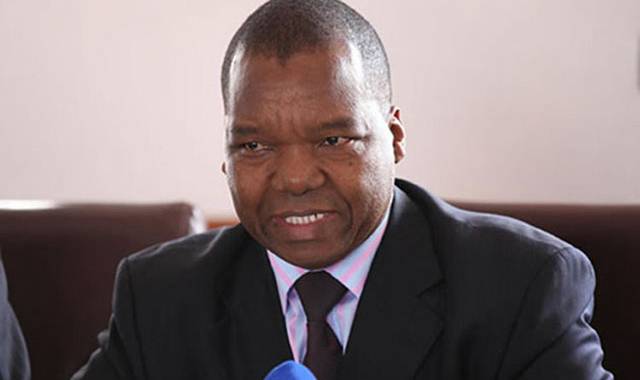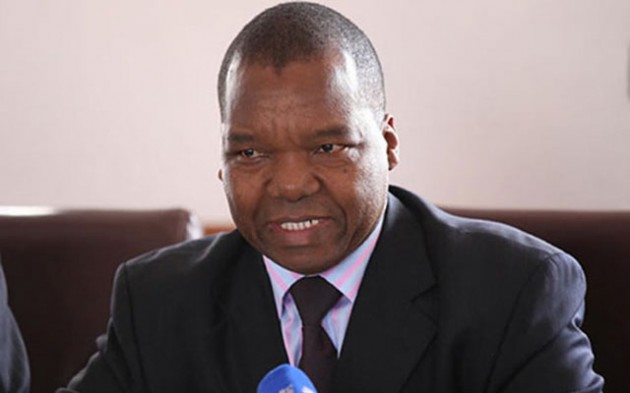Zim’s solution lies in production

Victoria Ruzvidzo In Focus
On Wednesday, Reserve Bank of Zimbabwe Governor Dr John Mangudya was raving mad as he lamented the failure by Zimbabweans to maximise on natural endowments, saying we were blaming cash shortages on wrong things, when it was poor production levels and attendant challenges that were causing the current liquidity constraints.
“Let’s rise up and work as Zimbabweans. The shortage (of cash) is a reflection that as Zimbabweans we are not making use of the resources that God gave us. For example we have 15 million tonnes of gold underground, but we have only used 900 tonnes. Why? We have lots of platinum underground and the best coal in the world . . . parastatals need to work harder.
“The rand (that some have proposed we adopt) does not improve state enterprises . . . it takes us . . . it takes hard work.”
“Let’s not sugar-coat our problems. Let’s go for the hardcore. Let’s do what is right for our economy. Once we do’ that there won’t be shortage of cash in this country,” he said as he addressed participants at the University of Zimbabwe media, academic and business interface organised by faculties of Arts and Social Studies.
He was spot on.
We have always said this country is so rich and yet so poor.
We have the resources and know what needs to be done, but the devil is in the implementation.
We do not get to do that which we must to get the economy out of the woods.
We mourn about this challenge or the other and yet the solution is under out feet, literally.
He revealed that presently, 85 percent of export earnings come from tobacco, gold, platinum, ferro-chrome.
“This is what is carrying the economy. We need to expand these products. Zimbabwe has everything it needs. If we do not build Zimbabwe as a team, no one will do it for us. We build by going into mining, agriculture, tourism and other sectors of the economy and the time is now.”
Indeed, very few countries are as endowed as we are, but we are grouped with struggling economies because we have not made the most of what we have.
In fact, we have not even started maximising on available resources, hence we have just remained a country with immense potential. Our wealth continues to lie dormant. But I am sure we all agree that this is not new. We are aware of what we have and what needs to be done.
We have books, documents, research papers, dissertations, theses and all sorts of document on what we need to do to fully exploit our resources for our sake and for posterity.
Foreign currency would not be an issue, jobs and businesses would not appear on our wish lists, while a huge debt burden and inadequate electricity, water supplies and medications would all be foreign language if this country was to put to good use the resources that it is pregnant with, but alas we continue to mourn, worry, murmur and complain.
We would not even know how to spell poverty, disease and other such afflictions this country is grappling with. It s about hard work and a determination to achieve.
“The currency crisis is a symptom of a production crisis”. In fact, Africa is said to be afflicted by a resource curse. The continent is so rich in natural endowments but suffers from chronic levels of poverty. And Zimbabwe goes with the flow in this instance.
It has been said that this continent physically looks like a question mark. It asks itself why it is in the state that it finds itself in. We have so much on the continent. From coffee to oil, from minerals to fertile lands and, yes even the critical human resources.
Where then do we go wrong? Did l mention we have the markets too. My thesis is that we need not be a conundrum. Rather, we should assess where we are, what we have been doing and how we could do it better to create our own employment, eradicate poverty and set us up on a growth trajectory.
Is it not a compelling question to all of us that we are devoid of creativity in the midst of plenty. Where is our pride and resourcefulness?
Is it not a compelling question to all of us that we are devoid of creativity in the midst of plenty. Where is our pride, resourcefulness?
Agriculture remains our mainstay, yet we seem to be entirely dependent on weather elements. How prudent is that for people with such fertile and arable lands. How much control do we have over weather?
What of irrigation systems. We should seek investments into areas within the sphere of our control.
Mining, as mentioned earlier, is under-performing. We can’t celebrate mediocrity or small gains. Lets look at the larger picture. As Africans and Zimbabweans, our slant or propensity for consumption at the expense of production is our greatest undoing.
The euphoria of being in control of means and that relative small wealth sends us into delirium and myopia. The nouveau riche ailment! Yet there is so much to do to change the narrative.
Even when we get bank loans, the default rate is unsustainable for banks, who are the custodians of depositors funds. Any funds which don’t go towards productive purposes are used for consumption. It matters not that we buy assets, especially those with no returns or dividends.
No single economy grows without the requisite high production levels. For mining, the inclusion of the small-scale miners in the matrix is a step in the right direction. Fidelity will attest to that. More still has to be done. We can augment production in the mining sector in ways that will dwarf current statistics.
Are we embracing digital interruptions in our operations. I acknowledge my sister Delta Ndou for her efforts in her weekly column. I was reading recently about digital innovations in Kenya, Morocco and South Africa. There apparently is some cloud software and in mining for example, it uses geospatial data to give precise information on mineral deposits, eliminating human error.
In agriculture, some cloud software still can ascertain levels of moisture and fertility of a given sample and then send it to a digital boardroom, which will determine appropriate interventions with as high as 30 percent increase in productivity And its not confined to those two, in Kenya, cervical cancer is rampant and digital technology has shortened its detection from months to two weeks.
Furthermore, in South Africa, operations that would take five weeks to recover now take four to five days as they are not that invasive, all enabled by digital developments. The point is, are we sufficiently aware of these and do we use that to up our productivity.
The world has gone digital and we don’t simply have to work hard, but work smart too. Targeted and smart protectionist measures can be very practical and efficacious. In fact, obtaining circumstances often override theory, but we are most times guilty.
I remember how the bond note was predicted to meet its precipitous fall on introduction and to this day it is holding it own . It’s all in the implementation matrix.
There is a joke I got wind of recently, which says blacks are forever drinking. In times of triumph, we drink to celebrate, in times of sorrow, we drink to forget and still if nothing is happening we drink till something turns up.
That somehow projects an image of passivity and a total lack of attention to what is important. Our pathetically low production levels give credence to the stigma so captured in that joke.
For all sectors, lets note where we are and benchmark with capacity. Be it agriculture, mining, tourism, services sector, construction, manufacturing. Let us assess where we are, where we want to be and what needs to be done, embracing technology and leveraging all our assets.
The benefits are multiple: employment creation, poverty eradication, economic growth and meaningful lives. Then we can talk about pride of place.
I God I Trust!








Comments